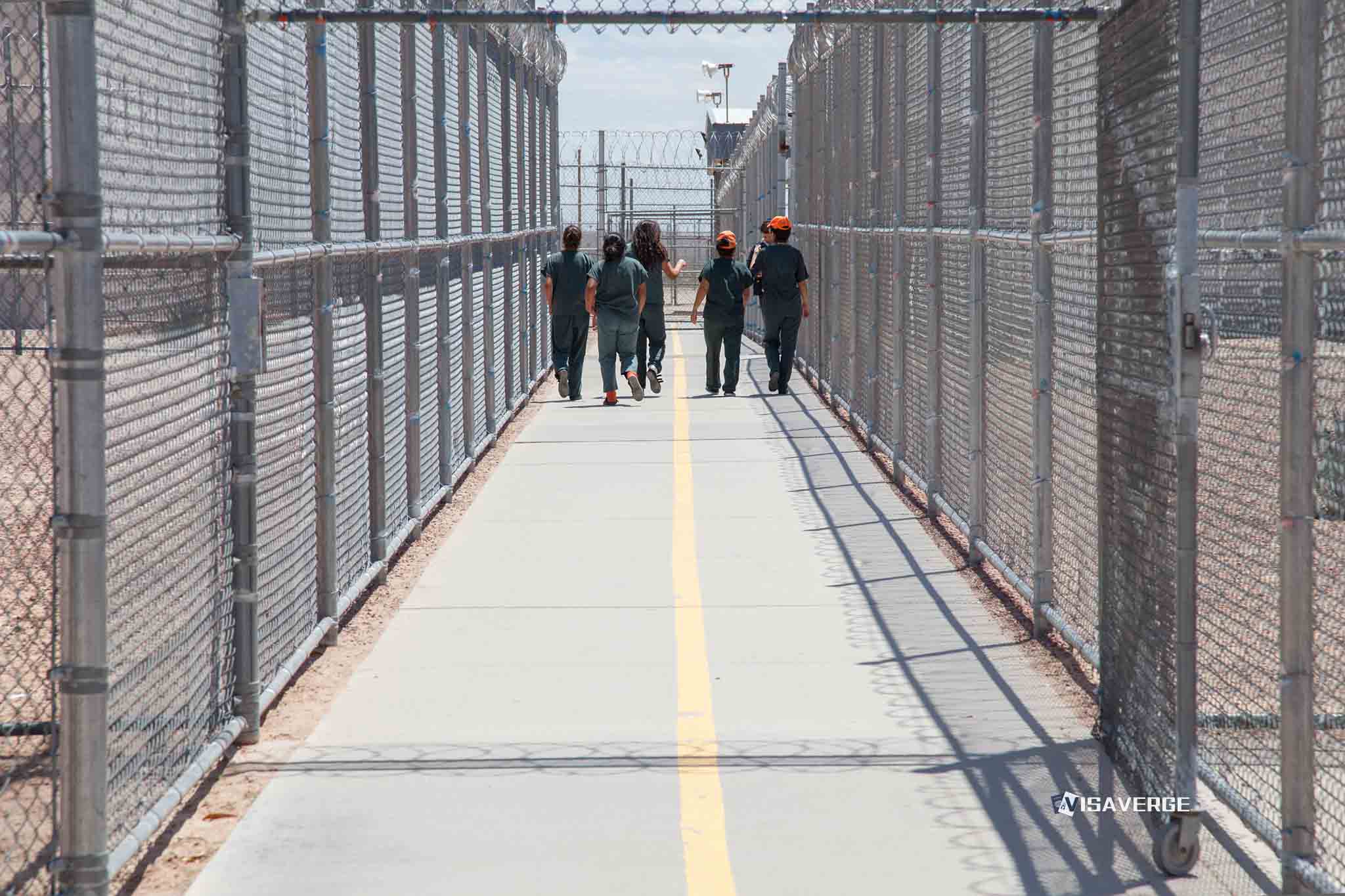U.S. Immigration and Customs Enforcement (ICE) has come under sharp criticism after major changes to its detention and enforcement policies in 2025. As of July 31, 2025, ICE’s operations have become even more secretive, with critics saying this secrecy is about control and political priorities, not public safety. These changes have serious effects on immigrants, their families, and entire communities across the United States 🇺🇸.
ICE’s recent removal of bond hearings for detainees, announced on July 7, 2025, means that people held by ICE now face automatic detention unless they can challenge it in court. This shift makes it much harder for detainees to secure release, increasing the number of people kept in custody for long periods. Legal experts warn that this move prioritizes enforcement over individual rights, making it difficult for immigrants to fight their cases or reunite with their families.

The U.S. Senate’s approval of a massive budget increase for immigration enforcement on July 1, 2025, has fueled these changes. Lawmakers allocated about $170 billion for immigration enforcement, including a 265% increase in ICE’s detention budget. This funding allows ICE to expand its detention capacity to potentially hold up to 116,000 noncitizens daily. The enforcement and deportation budget has also tripled, supporting more arrests and removals. According to analysis by VisaVerge.com, this financial boost signals a clear focus on mass detention and deportation, rather than on safety or transparency.
ICE’s new policies follow executive orders from early 2025 that call for “maximum detention,” strict “repel, repatriate, and remove” actions, and tighter limits on parole and legal aid for detainees, especially minors. Despite these sweeping changes, ICE has not published detailed policies explaining how these orders are being carried out. The agency has also resisted requests for information under the Freedom of Information Act (FOIA), making it hard for the public and legal advocates to understand what is happening behind closed doors.
One of the most controversial changes is the introduction of daily arrest quotas. ICE agents are now expected to arrest 3,000 individuals every day, regardless of whether those individuals pose any real threat to public safety. This quota-driven approach means that enforcement is based on numbers, not on careful assessments of risk or community needs.
ICE’s culture of secrecy is not new. The agency has long operated with limited oversight and little public disclosure, especially in its dual roles of enforcing immigration laws and managing detention centers. However, the 2025 policy framework, which builds on the approach taken during President Trump’s administration, has taken secrecy and aggressive enforcement to new levels. The focus is now on detaining more people, reducing protections for immigrants, and cutting back on options like parole and asylum.
Critics argue that this secrecy is designed to hide controversial practices from public view. These practices include family separations, large-scale raids, and poor conditions in detention centers. By keeping details hidden, ICE avoids scrutiny from the public, the courts, and the media. As one immigrant rights advocate put it, “ICE’s secrecy is not about safety—it’s about avoiding accountability and making it easier to deport people without anyone knowing what’s really happening.”
For those caught up in the system, the effects are immediate and harsh:
- Detainees now face automatic detention with almost no access to bond hearings. This means longer stays in custody and fewer chances to be released while their cases are decided.
- Legal aid for minors and parole options have been sharply reduced. Young people and families are especially vulnerable, with fewer protections and less help from lawyers.
- Communities live in fear of aggressive raids and arrests. Because ICE agents must meet daily quotas, many people are picked up even if they have no criminal record or pose no threat.
- A lack of transparency makes it hard for lawyers and advocates to help. ICE’s refusal to share information means that families and legal teams often don’t know where detainees are being held or what charges they face.
Legal experts warn that the elimination of bond hearings and the huge increase in detention funding are making the immigration court system even more overloaded. With more people in detention and fewer chances for release, court backlogs are growing, and many immigrants spend months or even years waiting for their cases to be heard. This situation raises serious concerns about due process and fair treatment under the law.
Government officials and ICE leaders defend their secretive approach by saying it is needed for “operational security.” They claim that sharing too much information could let people avoid arrest or interfere with enforcement actions. However, many experts question this reasoning, especially given the scale of ICE’s operations and the focus on mass arrests rather than targeted actions.
The debate over ICE’s secrecy and detention practices is far from over. Several legal challenges are now underway against the executive orders that support these policies, including lawsuits over restrictions on birthright citizenship and parole. The outcomes of these cases could force ICE to change its approach and become more transparent.
In Congress, lawmakers are still debating how to balance funding for enforcement with investments in asylum processing, legal representation, and community-based alternatives to detention. Some members are pushing for more oversight and transparency, arguing that the current system is unfair and inhumane.
Advocacy groups and legal organizations continue to file FOIA requests and push for more information about ICE’s internal policies. They hope that increased public awareness will lead to reforms that protect the rights of immigrants and ensure fair treatment for all.
For families and communities affected by these changes, the future remains uncertain. Many live in fear of sudden raids, long-term detention, and separation from loved ones. The lack of transparency makes it hard to know what to expect or how to prepare.
If you or someone you know is affected by ICE detention or enforcement actions, it is important to seek legal help as soon as possible. You can find official information about ICE detention standards and policies on the ICE Detention Management page. Staying informed and connected to advocacy groups can also help protect your rights and provide support during difficult times.
In summary, ICE’s culture of secrecy in 2025 is driven by expanded enforcement powers, political orders, and a focus on control rather than real safety concerns. This secrecy allows for aggressive detention and deportation practices with little public oversight, raising serious legal and human rights questions for immigrants and their communities.
Learn Today
U.S. Immigration and Customs Enforcement (ICE) → Federal agency enforcing immigration laws and managing detention centers in the United States.
Bond Hearings → Legal proceedings allowing detainees to request release pending immigration court decisions.
Freedom of Information Act (FOIA) → Law enabling public access to federal agency records to promote government transparency.
Detention Quota → A required daily number of arrests ICE agents must meet regardless of individual threat risk.
Detention Budget → Government funds allocated to support immigrant detention center operations and related enforcement.
This Article in a Nutshell
ICE’s 2025 policy changes increase secretive detentions and raids, removing bond hearings and expanding budgets. These aggressive tactics impact immigrants and families, raising critical legal and human rights concerns amid an overwhelmed court system and calls for more transparency.
— By VisaVerge.com








